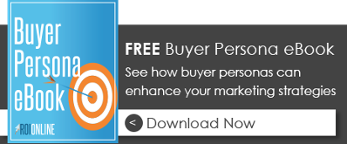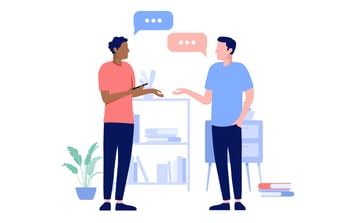Content Marketing: It's Not ALL About You
There were several things we took away from Content Marketing World last week in Cleveland, one of them being to focus on the customer. Ann Handley, Chief Content Officer of MarketingProfs, urged us to put the "customer at the center." And as Kristina Halvorson, founder of Brain Traffic, so eloquently put it, "The heart of marketing is not advertising, it isn’t engagement, reach, data or even content. The heart of marketing is our customer.”
So what does this mean? It means that your customers or potential customers may not want just content; rather, they want your attention.
If you are going to offer content to someone, make sure the customer, the person who is seeking a solution to their problem, is the center of the story. So often we see content revolving around a business's "amazing products and services that will save you a ton of money."
If you are engaged in online content development you may well be falling into this pit without even realizing it. People want to know you care about their problems and that you can, and will, help them find a solution. How can you make your content more about the customer, yet promote your services at the same time? It's kind of like that really annoying person at a party, the one nobody really likes but is invited anyway, who always goes on and on about this fabulous trip they just took or their awesome business opportunity you just can't pass up.
The goal of online content is to spark a dialogue with current and future customers, but if all that you are doing is the online version of buttonholing an unfortunate partygoer in the corner, then you are probably seeing the same results that he is from his audience.
The difference is of course that you can make the necessary changes to optimize your content marketing strategy to be more representative of a conversation than a sales pitch.
What Should You Talk About In Your Online Content?
While you spend an inordinate amount of time with your content development, you need to step back occasionally to see the forest for the trees. For instance, are all the trees you are planting growing up to be a self-centered forest that contains nothing other than information about you or your business?
Obviously, it is OK to discuss your company and its products. After all, that is the business of marketing, but if that is all you talk about, then you risk losing the 70% of online visitors who haven’t been sold on your products. Nobody wants to be forced to learn about a product or service. They want to think they made the decision on their own. That’s the amazing thing about online content. It’s not interruption-based. People can make their own decisions without being goaded by a loud TV commercial or flashing pop-up advertisement.
It's All About The Customer
When you open with this approach all you are talking about are those things that you and your company care about with little regard to what might be on the mind of the other party to your conversation: your readers, your online leads.
Promotional material masquerading as helpful advice is quickly dismissed by the savvy buyer who is familiar with these bait-and-switch tactics. They aren’t searching for an infomercial or pop ad screaming about your products and services. They are looking for a solution to their problem. Provide content that is honest, educational, and relevant.
How Can I Change My Content Marketing Strategy?
Happily, if you are guilty of being “that” guy at the party, even when the party is online, you can take positive steps that will result in your being cheered upon arrival rather than being met with jeers and unflattering asides. Simply stated, when you begin to craft your next online content information, whether it’s a blog, email, or social media post, stop talking about yourself. Rather than pushing your latest product release, your unbeatable discount, or outstanding services, why not talk about your customer’s concerns and worries honestly without trying to wrap their solution around your product?
That doesn’t mean you can’t talk about your offer at all. For example, in a blog, mention your business or product in the last paragraph in a call to action, encouraging the reader to learn more about how you can help solve their problem. Don’t badger someone to check out your product. Just gingerly nudge them toward it.
Nothing begets an honest relationship like an honest conversation, so begin talking to your customers about their needs and wants rather than your products and services.
If you are still having trouble coming up with a content strategy, be sure to look at your business's buyer personas. That's one of the first steps you should take when developing a content marketing strategy. To learn more about developing your business's buyer personas, be sure to download our free eBook!






